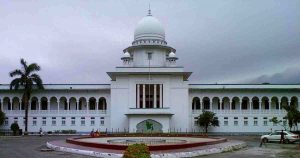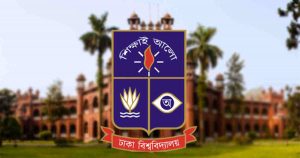M Zahidul Haque
It is a felt-need of stakeholders as well as the demand of the present job markets to introducing a separate degree program in Agricultural Journalism at the university level. Agricultural Journalism is a specialized branch of Journalism that communicates information on agricultural and other related scientific issues for enhancing crop production, ensuring food security and safety and proper nutrition of people.
Agricultural Journalists perform the communication tasks through receiving, writing, editing and reporting news and views with necessary photographs by using print and electronic media like newspapers, magazines, radio, television plus online platforms. Agricultural Journalism, Agricultural Communication and Agricultural Extension serve the same purposes of disseminating information excepting Agricultural Extension which works on technology transfer and imparts non-formal education to farming and non-farm people.
If we look back over history, it would be evident that Journalism education at the college level was first offered in 1869 in the United States. According to the World Journalism Education Council, nearly 2400 journalism education programs exist globally. In Bangladesh, formal university level journalism education was started in 1962 through the introduction of a Journalism Degree course. In 1976 the DU renamed its department as the ‘Department of Mass Communication and Journalism’ and introduced more courses in journalism higher education. At present some public universities and private universities in Bangladesh are offering courses under different titles, journalism, communication, media studies, etc. It may be indicated here that the Sher-e-Bangla Agricultural University is offering a course in Agricultural Journalism in MS agricultural extension program.
In 2013, the UNESCO released a model curriculum for journalism education primarily meant for the developing countries and emerging democracies. Till today the content of journalism education at tertiary level is passing through changes and improvements emphasizing the theory-practice issues within journalism education instruction-learning arena. Agriculture is a broad area of science containing several subjects starting from Crop Botany/Biotechnology to Agricultural Extension/Communication. Recently the newly elected first woman President of International Federation of Agricultural Journalists (ifaj, a journalists’ forum of nearly 76 countries) Lena Johansson said-“Agriculture needs specialized, experienced journalists and communicators who can describe and explain the whole complex picture”.
During the on-going corona pandemic, people all over the world realized from the heart that ensuring food security for the global population is a prime task of the hour; agricultural journalists have a significant role to play in this field by keeping a steady flow of agricultural information. So to produce a sufficient number of Agricultural Journalists, a separate degree program in Agricultural Journalism needs to be introduced in Agricultural Universities of the country.
The nomenclature for such a degree at the post-graduate level may be “MS in Agricultural Journalism”. Since an agricultural journalist cannot perform well without adequate knowledge in complex agricultural science and technology, the minimum qualification for admission into the MS in Agricultural Journalism program should be BSc.Ag.Hons plus other relevant degrees.
Broadly, the course content of MS in Agricultural Journalism may include:-
–Fundamentals of Journalism
–Concept and practice of Agricultural Journalism
–Photo Journalism
–Online Journalism
–Collective and Data Journalism
–Advertising and Public Relations in Agricultural Journalism
To save extra expenditure for opening and operating an independent Agricultural Journalism Department, the existing Agricultural Extension/Information/Communication departments in the agricultural universities may be entrusted with the responsibility of offering instructions plus assessing Agricultural Journalism students. Some new teachers specialized in Journalism may be recruited for running the program successfully.
(The author is a Professor in the Department of Agricultural Extension and Information, Sher-e-Bangla Agricultural University, Dhaka. Email: prof_haque@hotmail.com)




